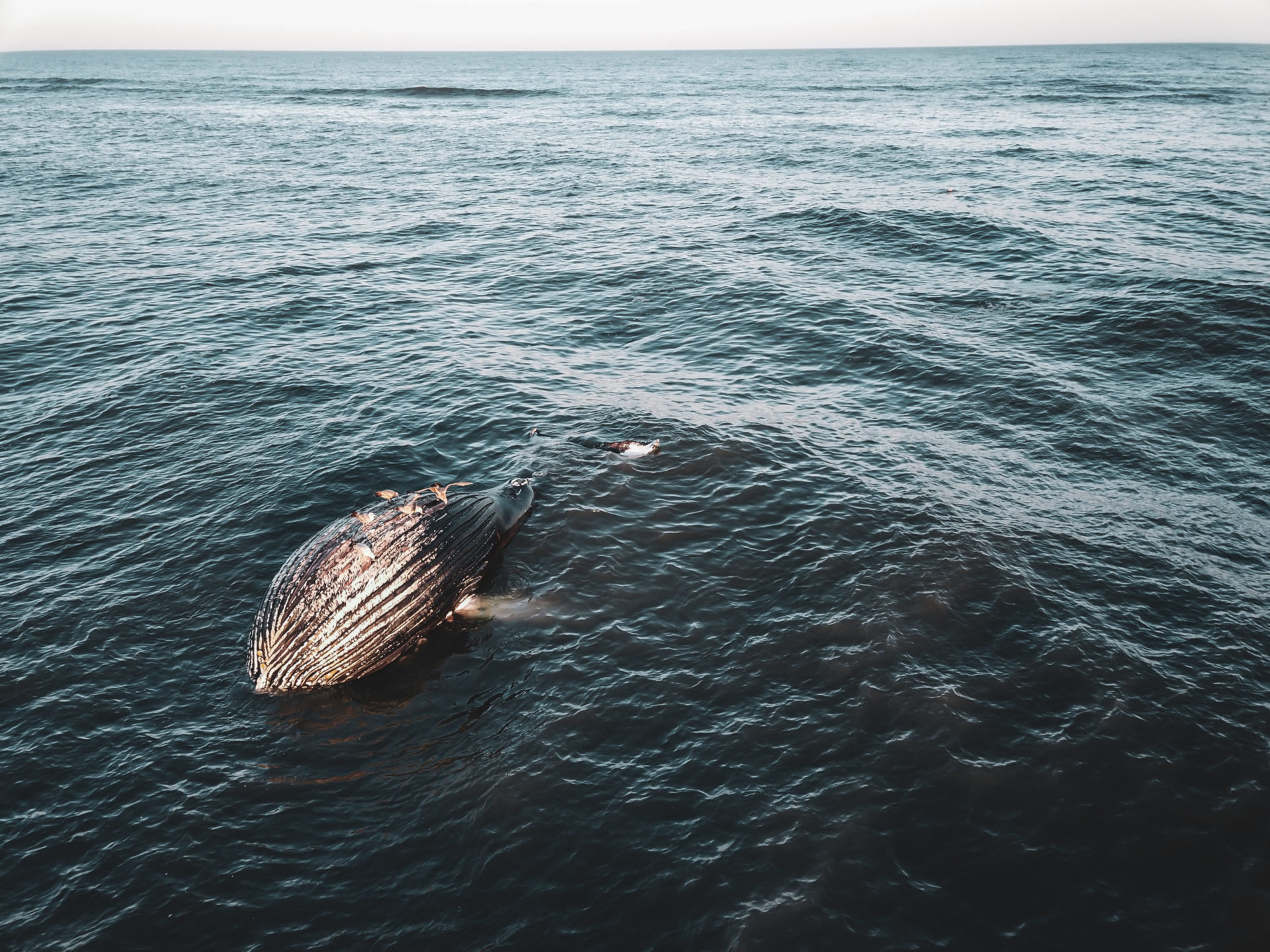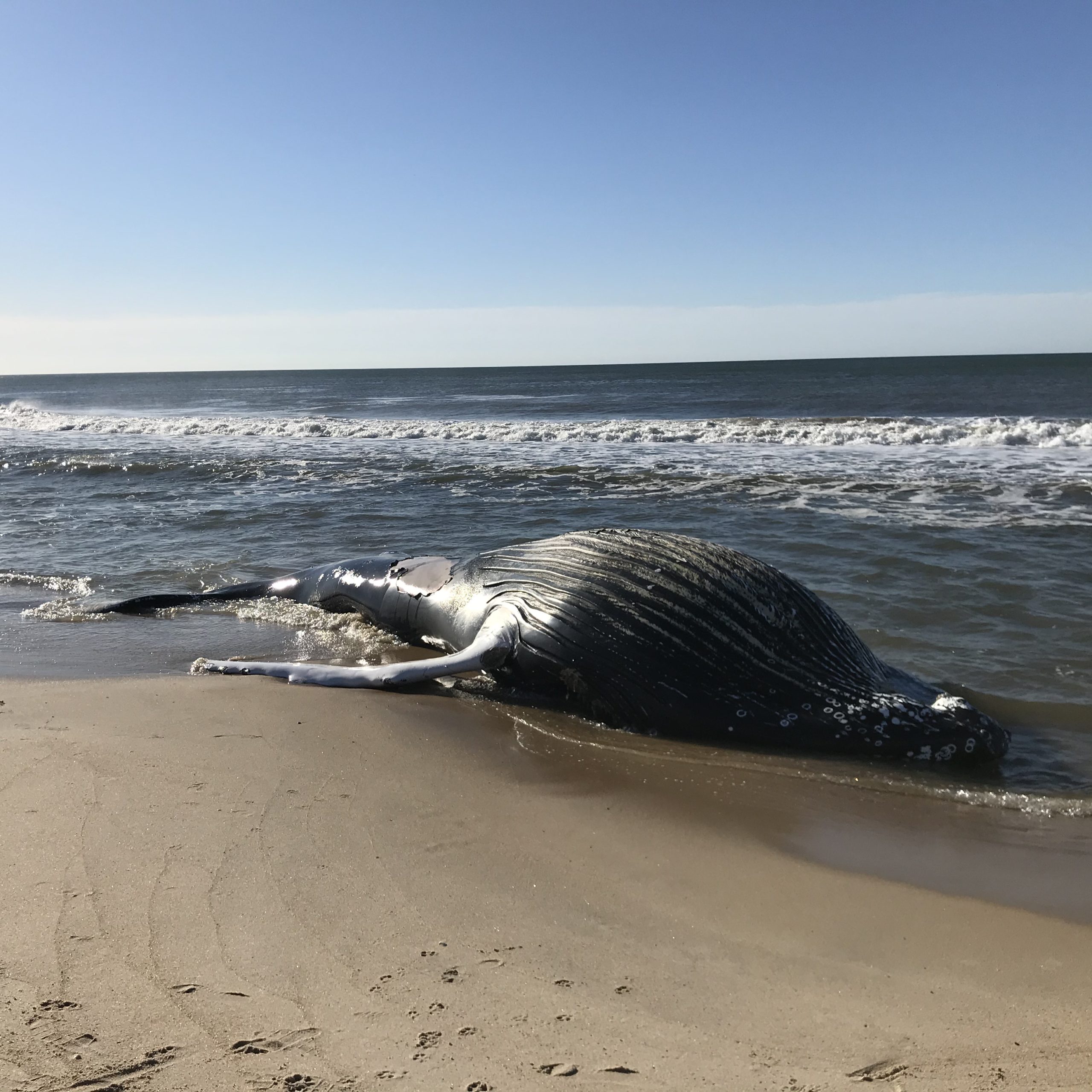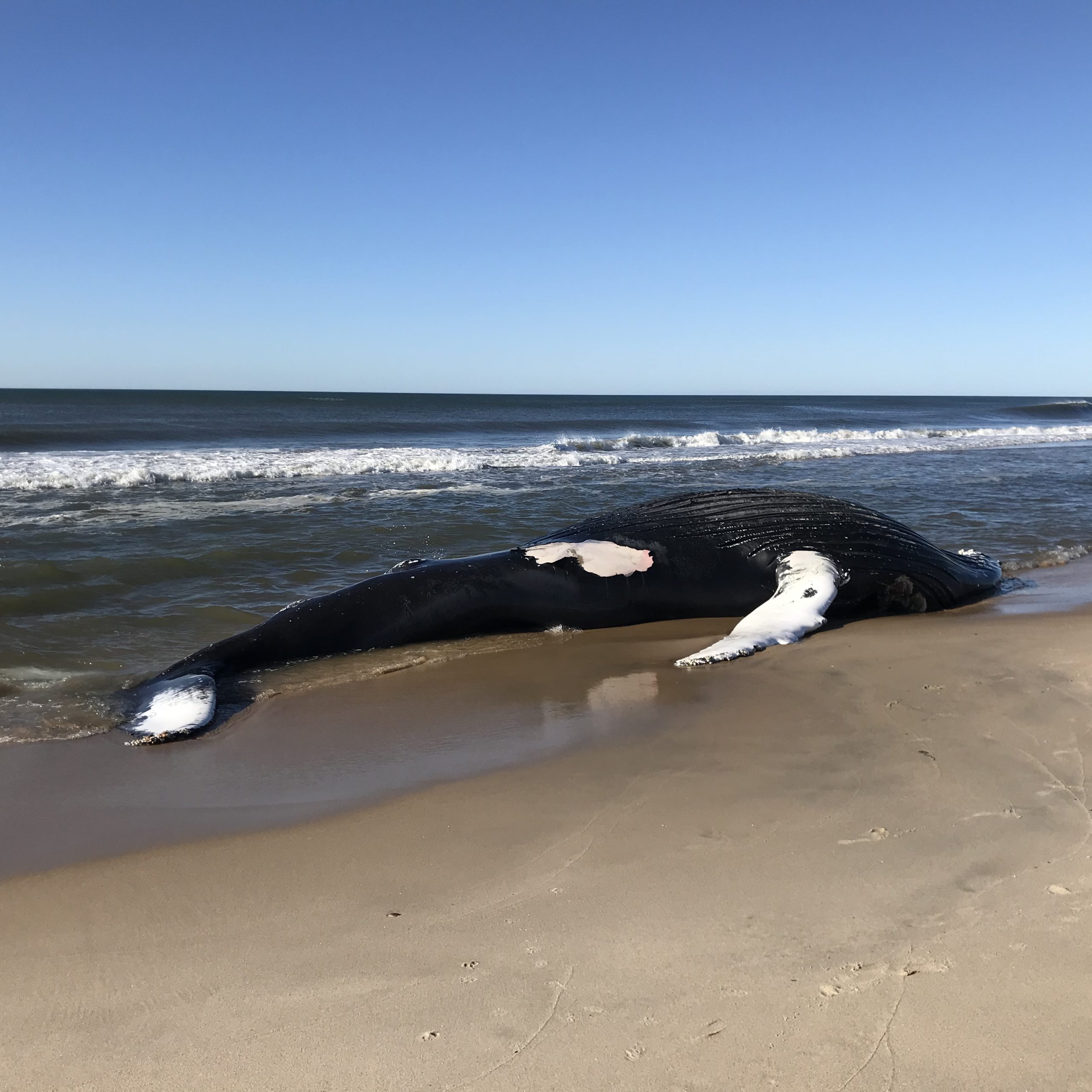Whale Washes Up In Amagansett
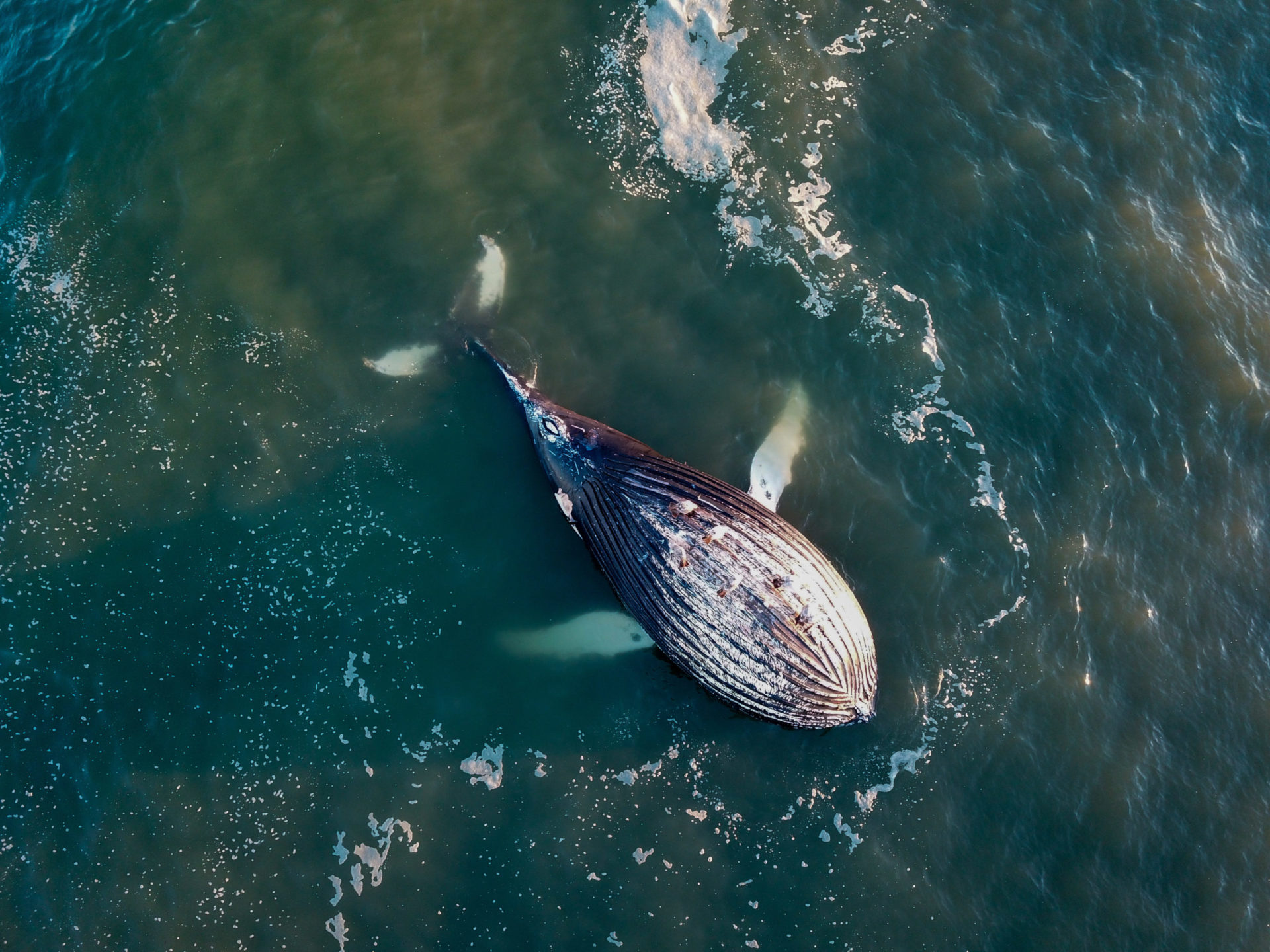
Videographer: Independent/Tanner Smith
Update, May 31, 4:45 PM: By Sunday afternoon, the Atlantic Marine Conservation Society (AMSEAS) completed a necropsy examination on the humpback whale that had stranded in Amagansett Sunday morning.
It found that the whale was 33.8 feet long, sub-adult female that had “a decent layer of blubber and food in its stomach, indicating that the animal had been eating,” according to a statement on Sunday afternoon. “Biologists found some suspect bruising, and collected tissue samples to send to a pathologist to determine if there is any evidence of trauma.” The results may take several months to come back.
The whale was hauled offsite to a disposal facility, in accordance with East Hampton Town’s protocol.
“Each large whale stranding is always a unique case,” Robert A. DiGiovanni Jr., the chief scientist at AMSEAS said. “With the addition of COVID-19, we’ve had to adapt to a new set of challenges in our response efforts. Safety has always been and will always continue to be a top priority, and we have worked diligently to ensure our work falls within the guidelines of Governor Cuomo’s ‘New York State on PAUSE’ policies.”
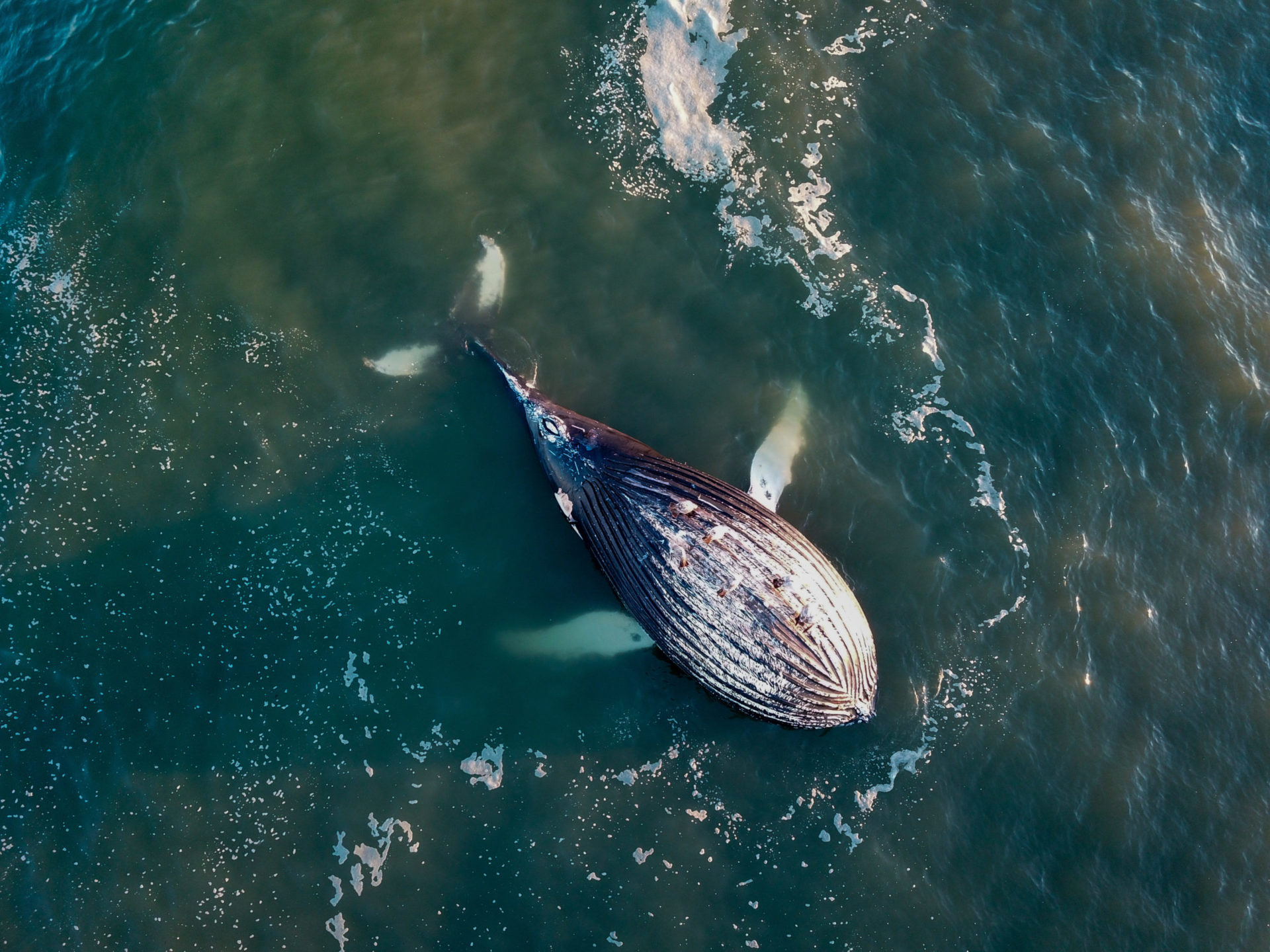
Originally, May 31, 11:16 AM: A dead humpback whale washed ashore at Atlantic Avenue Beach in Amagansett Sunday morning.
The whale, a 35-foot-long female, according to East Hampton Town officials, was first seen Saturday night about 150 yards off of the beach. Tanner Smith of East Hampton went down to see it and said the waves were not strong enough to bring it in right away, but Sunday morning it made landfall.
East Hampton Town Marine Patrol and ocean lifeguards secured the area and contacted environmental agencies, including the New York State Department of Environmental Conservation, according to a statement from Supervisor Peter Van Scoyoc’s office.
The Atlantic Marine Conservation Society (AMSEAS) is at the beach, and will perform a necropsy to try and determine cause of death. Examiners will maintain social distancing, according to Rachel Bosworth, a spokeswoman for AMSEAS. The whale had no visible injuries, said Robert A. DiGiovanni Jr., the chief scientist.
Heavy machinery will be used to move the whale out of the surf and it will be carted away, the town said.
For the time being, there is no foot traffic west of Atlantic Avenue and no swimming until the whale is removed, even though the whale is outside the lifeguarded area, said John Ryan Jr., the town’s chief lifeguard.
Since January 2016, increased humpback whale mortalities have been documented along the Atlantic coast from Maine through Florida, and several have occurred on the East End. According to the National Oceanic and Atmospheric Administration, 124 humpback whales have died between 2016 and 2020. It has been declared an unusual mortality event.
The whale in Amagansett is the third large whale death the AMSEAS has responded to this month, according to the town’s press release.
The body of a minke whale was found in Oyster Bay earlier this month, and just last weekend, a moderately decomposed 32-foot humpback whale floated ashore at Cupsogue Beach County Park in Westhampton Beach. It had been found floating approximately one mile offshore near Moriches Inlet on May 22, and officials towed the carcass near the shore so it could wash up on the beach by the next morning.
AMSEAS conducted a necropsy of that whale to determine its cause of death, but it was inconclusive. The whale was said to be robust, but there was evidence of a previous entanglement, orca predation and healed wounds on its fluke. Samples were taken and sent to a pathologist, but results can take several months.
In that case, the whales’ remains were buried on the beach.
Whale sightings can be called into the New York State Stranding Hotline at 631-369-9829.
